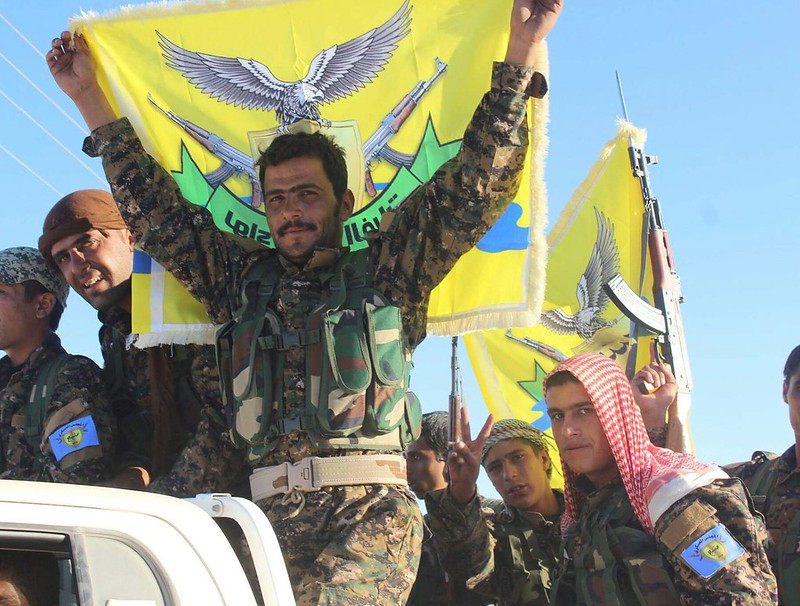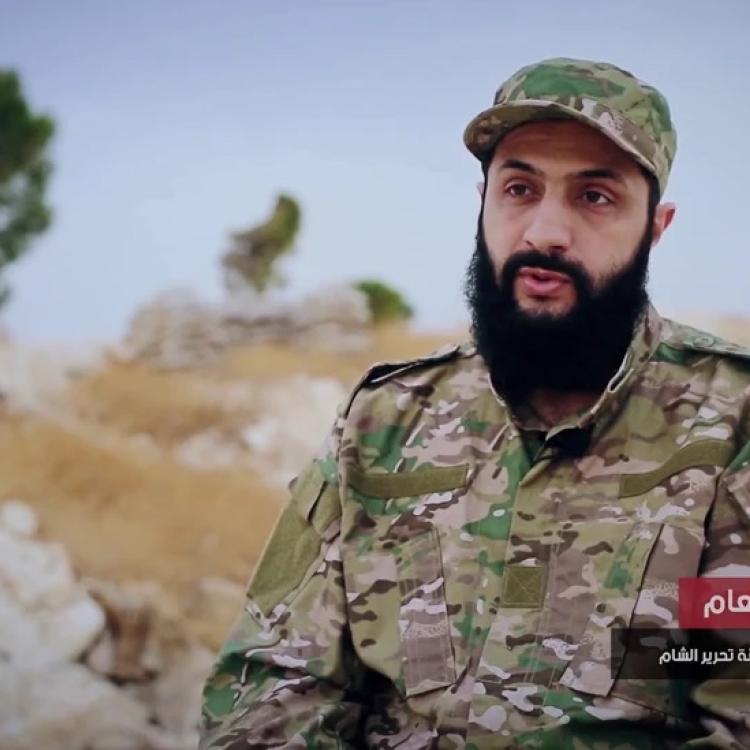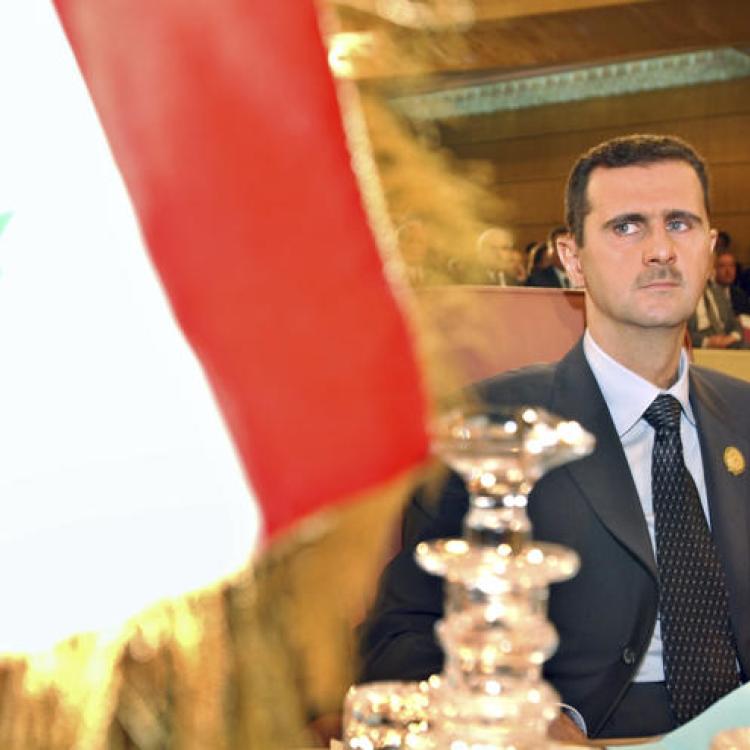
File photograph: SDF fighters in 2016. (Flickr)
The recent agreement between the Kurdish-led Syrian Democratic Forces (SDF) and the Syrian central government has received international backing, after it was agreed the alliance would integrate all military and civilian institutions into the Syrian state.
US and global reactions
The United States has welcomed the agreement, with Secretary of State Marco Rubio stating that Washington supports a political transition that ensures “non-sectarian governance as the best path to avoiding further conflict”.
“We will continue to watch the decisions made by the interim authorities, noting with concern the recent deadly violence against minorities,” he added.
The Chinese foreign ministry, in an email to Rudaw's Mahdi Faraj, also called for a “reconstruction plan that aligns with the will of the Syrian people through dialogue, and achieve peace and stability in Syria as soon as possible”. Beijing has increased its involvement in the region, previously brokering a diplomatic reconciliation between Iran and Saudi Arabia in 2023.
Turkish President Recep Tayyip Erdoğan cautiously endorsed the deal, stating, “The full implementation of the agreement reached yesterday in Syria will contribute to the country’s security and stability.”
Turkey has long seen the SDF as “terrorists” due to their links with the Kurdistan Workers' Party or PKK. A Turkish official told Reuters that the SDF has "made promises before, too, so we are looking at implementation rather than at the expression of intent here".
Several Arab states, including Saudi Arabia and Qatar, also welcomed the agreement, describing it as an important step towards stabilising Syria and maintaining civil peace.
The Agreement
The deal, signed on 11 March by Syrian interim President Ahmed al-Sharaa and SDF commander Mazloum Abdi, grants the Syrian government full control over the semi-autonomous Kurdish-administered region. Under the agreement:
• The SDF will integrate all civil and military institutions into the Syrian national administration, effectively dissolving its independent governance structures.
• The central government will assume control over border crossings, airports, and oil and gas fields in northeastern Syria.
• The Kurdish people are formally recognised as an integral part of Syria, with guarantees of citizenship and constitutional rights.
• A ceasefire has been declared across the country.
• The SDF has committed to combating remaining pro-Assad factions that continue to resist the current administration.
The agreement is one of the most significant political developments in Syria since the fall of Bashar al-Assad, who was overthrown by opposition forces in December 2024 after 13 years of brutal civil war.
The deal comes at a critical juncture for Sharaa's administration, which has struggled to assert control over Syria’s fragmented factions. Recent sectarian violence in western Syria, where mass killings of Alawite civilians have occurred, has further destabilised the region. The Alawites, who dominated the Assad regime, have faced reprisals from groups loyal to the new government.
In southern Syria, Druze militias in Suweida province have been reluctant to surrender their arms. However, reports indicate that a similar deal to the SDF agreement may soon be reached between the government and Druze leaders.
Meanwhile, Israel has threatened to intervene, citing concerns over the protection of Druze communities and maintaining its own strategic interests. A campaign of Israeli airstrikes have already targeted Syrian military infrastructure.
The SDF and YPG
The SDF, a key US ally in the fight against ISIL (ISIS), has historically occupied a complex position in Syria’s civil war. It remained independent from both the Assad regime and opposition factions while maintaining a working relationship with Washington.
Its dominance over northeastern Syria, where it defeated ISIL in 2019, has long been a point of contention. The region holds significant oil reserves, making it an economic stronghold, and part of the traditional Kurdistan homeland. The biggest militia in the SDF is composed of the Kurdish People's Protection Units (YPG).
The fate of thousands of ISIL detainees held in SDF-run prisons is another key issue. Under the agreement, these detention facilities will now be managed by the Syrian government.
Read more from Al Jazeera here, the BBC here, Sky News here Reuters here and Rudaw here.



